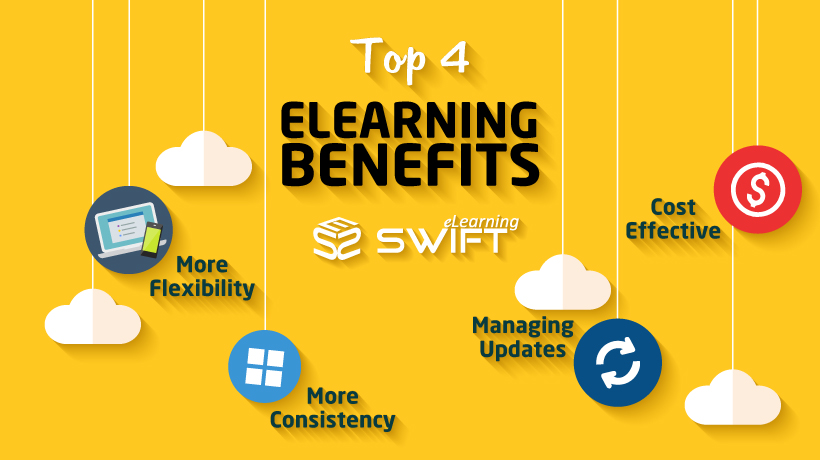The Benefits of eLearning
eLearning, or electronic learning, has revolutionized the way we acquire knowledge and skills. In this article, we will explore the numerous benefits of eLearning and how it has become an essential tool for education and professional development.
Flexibility and Convenience
One of the key advantages of eLearning is its flexibility and convenience. Unlike traditional classroom-based learning, eLearning allows individuals to access educational resources and courses from anywhere, at any time. This means that learners can create their schedules and study at their own pace, making it ideal for busy professionals or those with other commitments.
Cost-Effectiveness
eLearning offers significant cost savings compared to traditional learning methods. With eLearning, there is no need for physical classrooms, printed materials, or travel expenses. All the learning materials are available online, reducing the overall cost of education. This makes eLearning an affordable option for individuals and organizations alike.
Wide Range of Course Options
eLearning provides access to a vast array of courses and subjects. Whether you are interested in acquiring new skills, advancing your career, or pursuing personal interests, eLearning offers a wide range of course options to choose from. From language courses to professional certifications, the possibilities are endless.
Engaging and Interactive Learning Experience
eLearning platforms are designed to provide an engaging and interactive learning experience. Through multimedia elements such as videos, quizzes, and interactive exercises, learners can actively participate in the learning process. This not only enhances knowledge retention but also makes the learning experience enjoyable and motivating.
Personalized Learning
eLearning allows for personalized learning experiences tailored to individual needs and preferences. Learners can choose their learning paths, focusing on areas they find challenging or skipping topics they already know. This flexibility ensures that learners can make the most of their time and effort, maximizing the learning outcomes.
Continuous Access to Learning Materials
With eLearning, learners have continuous access to learning materials even after completing a course. This means that they can revisit the content whenever they need to refresh their knowledge or review specific concepts. The ability to access learning materials at any time ensures ongoing learning and skill development.
Improved Retention and Performance
Studies have shown that eLearning can lead to improved retention and performance compared to traditional learning methods. The interactive nature of eLearning, combined with various multimedia elements, helps learners retain information more effectively. Additionally, eLearning allows for immediate feedback and assessment, enabling learners to identify areas for improvement and enhance their performance.
Environmental Sustainability
eLearning is an environmentally sustainable learning option. By eliminating the need for physical classrooms and printed materials, eLearning significantly reduces carbon emissions and paper waste. This makes eLearning an eco-friendly choice that contributes to a greener future.

eLearning offers numerous benefits that make it a valuable tool for education and professional development. Its flexibility, cost-effectiveness, wide range of course options, engaging learning experience, personalized learning, continuous access to materials, improved retention and performance, and environmental sustainability make it an attractive choice for learners and organizations alike. Embracing eLearning can lead to enhanced knowledge acquisition, skill development, and overall personal and professional growth.
Frequently Asked Questions about the Benefits of eLearning
1. What is eLearning?
eLearning, also known as electronic learning, refers to the process of learning and acquiring knowledge through electronic technologies, typically over the Internet.
2. What are the advantages of eLearning?
eLearning offers several benefits, including:
Flexibility in terms of time and location
Access to a wide range of educational resources
Cost-effectiveness compared to traditional classroom-based learning
Ability to learn at your own pace
Opportunity for interactive and engaging learning experiences
3. Can eLearning be as effective as traditional learning methods?
Yes, eLearning can be just as effective, if not more, than traditional learning methods. Studies have shown that well-designed eLearning programs can lead to improved retention and knowledge acquisition.
4. How does eLearning promote self-paced learning?
eLearning allows learners to progress through the material at their own pace. They can review concepts they find challenging, skip sections they already know, and set their own learning goals.
5. Is eLearning suitable for all types of subjects?
Yes, eLearning can be applied to various subjects, ranging from academic disciplines to professional training. It can accommodate different learning styles and cater to diverse educational needs.
6. Can eLearning be personalized for individual learners?
Absolutely! eLearning platforms often provide personalized learning paths, adaptive assessments, and customized content based on learners’ specific needs and preferences.
7. How does eLearning enhance accessibility to education?
eLearning eliminates geographical barriers and allows individuals from remote areas or with physical limitations to access educational resources and participate in learning programs.
8. Are there any social interaction opportunities in eLearning?
Yes, eLearning platforms often incorporate discussion forums, chat features, and collaborative activities to foster social interaction and facilitate peer-to-peer learning.
9. Can eLearning be cost-effective for organizations?
Yes, eLearning can significantly reduce training costs for organizations. It eliminates expenses associated with travel, accommodation, printed materials, and instructor fees.
10. How can eLearning contribute to lifelong learning?
eLearning provides individuals with the opportunity to continuously update their knowledge and skills throughout their lives. It promotes a culture of ongoing learning and professional development.




